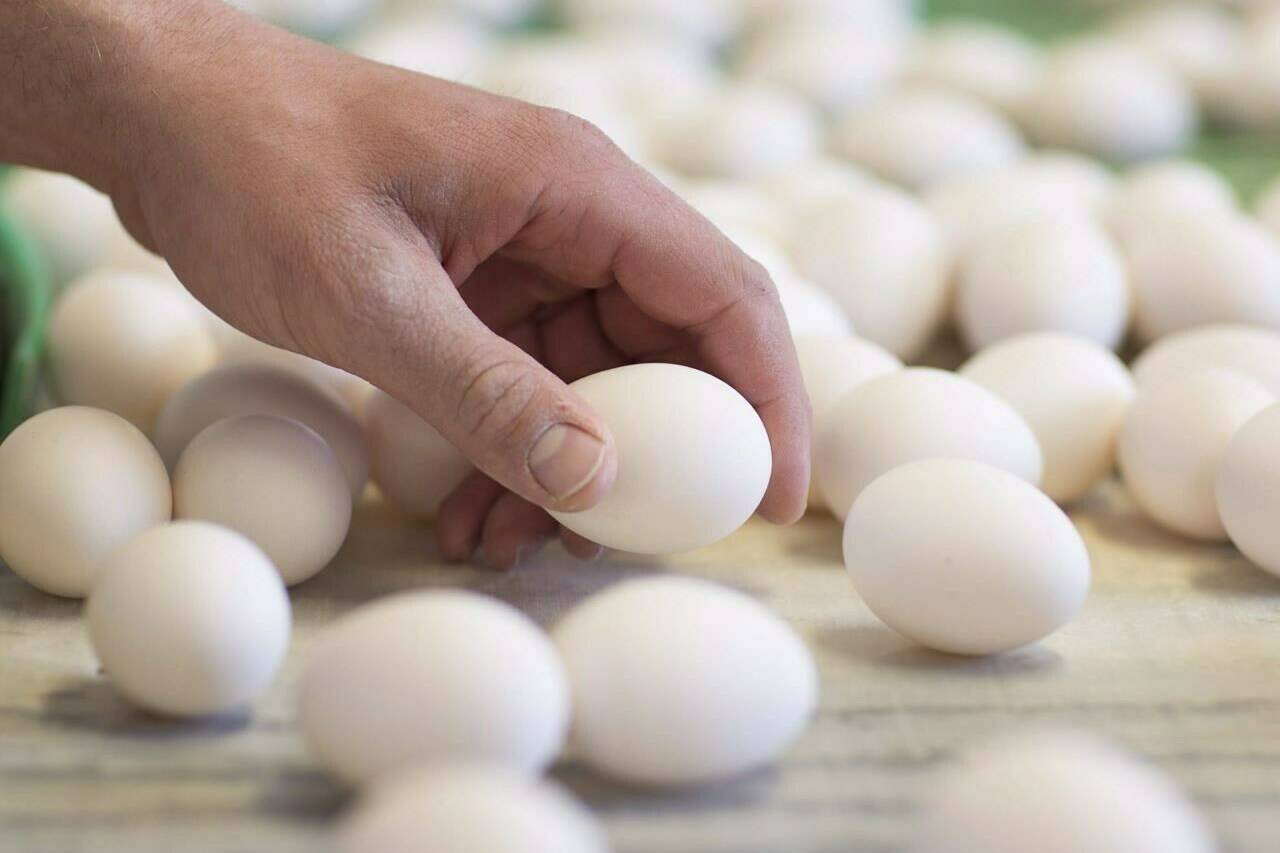When David Hyink checks on his barns each day, he does so with a sense of trepidation.
The central Alberta chicken farmer is on the lookout for lethargy, lack of appetite, or just a general appearance of ‘droopiness’ in his birds — all of which could be signs of the highly pathogenic strain of H5N1 avian influenza currently circulating in both wild and domestic flocks across North America.
If the disease were to turn up on his property, Hyink knows it would mean the loss of his entire flock. Avian influenza has a high mortality rate, and those birds at outbreak sites that don’t die from the disease are humanely euthanized to prevent the spread of the virus.
“While we haven’t had it on our farm, and I hope we don’t, it just appears it could be anybody,” Hyink said. “It could be us next, the farm next to us — you just don’t know.”
It’s that kind of uncertainty that is driving high levels of fear and stress on Canadian farms, where — according to Canadian Food Inspection Agency — poultry and egg producers have lost more than 1.7 million birds to avian influenza since late 2021. (The tally includes both birds that have died of the virus and birds that have been euthanized).
Alberta is the hardest hit province, with 900,000 birds dead and 23 farms affected. Ontario is the second hardest hit, with 23 affected farms and 425,000 birds dead.
But outbreaks of the virus have turned up now in every province except Prince Edward Island. Across the country, farmers are being encouraged to keep birds indoors, restrict visitors and ramp up biosecurity measures to help halt the spread. The virus can be spread between birds through direct contact, but it also spreads easily from wild bird droppings and can be carried into commercial flocks on the feet of workers or on equipment.
While avian influenza was first detected in Canada in 2004, this year’s strain— which has also been wreaking havoc in Europe and Asia — is “unprecedented” in terms of its global impact, according to the CFIA.
The new strain is highly transmissible and appears to be sustaining itself within wild bird populations. While there’s some hope that case counts might decline when the spring bird migration ends in June, for now, farmers are left wondering where and when the next outbreak will happen.
“You just don’t know, and you do the best you can,” Hyink said. “I guess you have to have a real attitude of acceptance, in terms of dealing with whatever happens.”
While farmers who lose flocks to avian influenza are eligible for government compensation, the disease has still caused significant disruption for industry, said Jean-Michel Laurin, chief executive of the Canadian Poultry and Egg Processors Council. Some producers who have tested negative for the virus on their properties but who are physically located close to outbreak sites have had their barns quarantined, and are unable to ship product.
Still, Laurin said consumers have not been affected by any shortages, as the Canadian supply chain as a whole for eggs and poultry is holding up well. Part of the reason for that, he said, is that unlike in the U.S. — where massive industrial scale barns are much more common, meaning an outbreak at one property can take out an enormous amount of supply — Canadian chicken barns tend to be smaller, family run operations.
“We have a more resilient supply chain, in that sense,” Laurin said. “Based on the evidence so far on the impact to the consumer, we’ve been able to weather the storm.”
That supply chain resilience has also protected against the type of sticker shock at grocery stores that consumers of eggs and poultry have seen south of the border. In fact, Laurin said where Canadian consumers have noticed cost increases for things like chicken and eggs, it has more to do with the rising cost of feed grain and overall inflation than it does with avian flu.
Still, Laurin said there is a great deal of uncertainty about what comes next. Canada’s last significant outbreak of avian flu was in 2014, although that was restricted to British Columbia and was not nearly as widespread as the current strain.
“If you ask me if this thing is going to become endemic in Canada the way it’s been in Europe for two years now – the answer is we don’t know,” Laurin said.
Health officials say that while avian influenza can occasionally cause illness in humans, it is rare and would be the result of close contract with infected birds or heavily contaminated environments.
Avian influenza is not a food-borne illness and humans cannot contract the virus by eating poultry or eggs.
—Amanda Stephenson, The Canadian Press
RELATED: Remove home bird feeders, empty bird baths to stop avian flu, BC SPCA asks
RELATED: B.C. poultry farmers uniquely equipped to respond to possible avian flu

